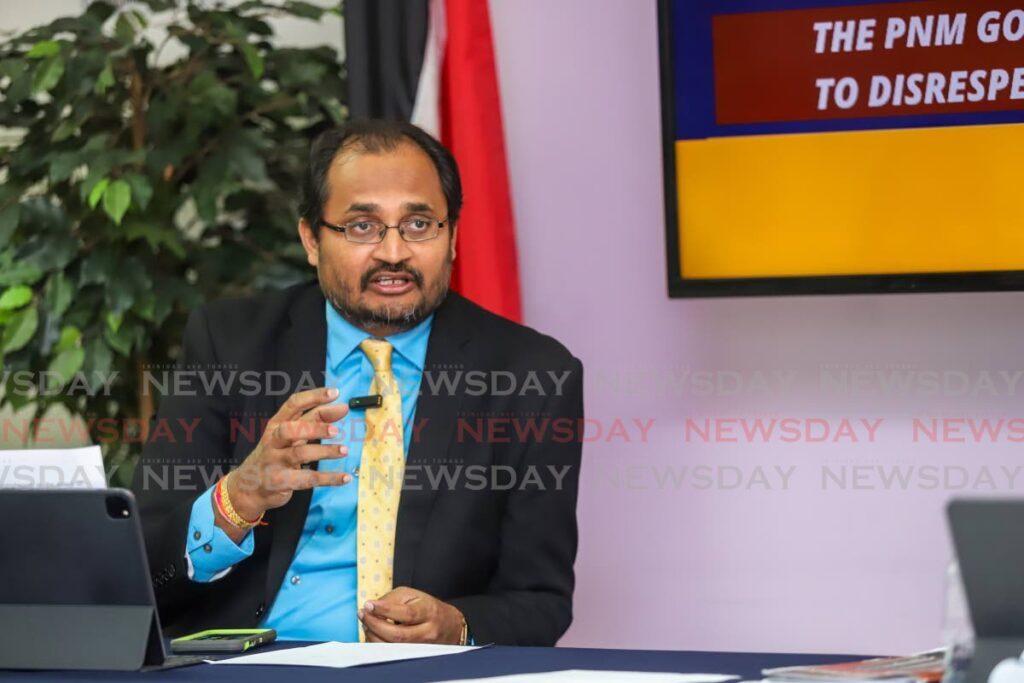Trinidad and Tobago's forex crisis: A closer look

DINESH RAMBALLY
THE ASSERTION by economist Dr Terrence Farrell that Trinidad and Tobago is not currently experiencing a foreign exchange crisis may be met with scepticism by many who find themselves struggling to access foreign currency.
Farrell made this assertion at a recent virtual seminar, Forex Flows and Woes, hosted by UWI's Trade and Economic Development Unit. While Farrell points to significant foreign exchange reserves, including the official reserves and the Heritage and Stabilisation Fund, his interpretation appears to be skewed.
This is the same Farrell who in the recent past was calling for a devaluation and who resigned from the Economic Advisory Board because his advice was being ignored. Suddenly he is singing a different tune. It is as if he is trying the recipe of mixing economics with political diatribe.
Rationing and unequal access
Farrell acknowledges the rationing of foreign exchange by commercial banks, attributing it to the overwhelming demand for foreign currency. He argues that the basis for rationing is the relationships customers have with their banks, leading to a perception of inequity.
This raises concerns about the distributional effects of foreign exchange, with larger companies receiving preferential treatment due to their higher import volumes. This has created a thriving black market trade.
Many of the business chambers have called for dialogue on this distribution. Many businesses have sought to buy US currency in Guyana. This has forced Guyana to say it does not want any more TT currency.
The rationing, coupled with a lack of transparency, creates an atmosphere of frustration among individuals and small businesses who face difficulties in securing foreign exchange. This in turn hampers economic activities and poses a threat to the overall stability of the nation's economy.
Foreign currency deposits and government intervention
While Farrell suggests the existence of foreign currency deposits in the local banking system, including those belonging to state entities, it is essential to question the feasibility and ethical implications of the Government's accessing these funds. Drawing on historical examples of accessing foreign exchange holdings from state enterprises, as mentioned by Farrell, raises concerns about the potential negative consequences and ethical considerations of such actions. What type of management is this?
Moreover, relying on state-owned deposits as a last resort in extreme situations underscores the fragility of the current foreign exchange situation. This reliance may indicate a lack of sustainable policies and strategies to address the underlying issues leading to the perceived crisis.
Credit-card limit reductions and physical cash scarcity
Farrell discusses the reduction in credit-card limits by commercial banks, particularly highlighting Republic Bank’s decision to cut the maximum US-dollar spending limit. However, this measure reveals a reactive rather than proactive approach to managing foreign exchange, indicating potential vulnerabilities in the banking sector's risk-management practices. The scarcity of physical US dollar notes further exacerbates the problem, as commercial banks struggle to meet the demand for cash.
He went on in delicately intricate and academic language to explain the concepts of banks being oversold.
While all of his explanations meet academic definitions, the symptoms he described in total is in fact a crisis. As Farrell has said, our forex reserves have been in a declining position for a number of years and he has not articulated anything to change this trajectory in the short, medium or long term. Following trend analysis, is it not obvious that the situation would continue to decline?
Foreign exchange reserves and economic diversification
While Farrell argues that the country's foreign exchange reserves are not in crisis, he acknowledges the declining trend in reserves due to the demand surpassing supply. This decline, if left unaddressed, poses a significant risk to the country's economic stability, especially considering the current incentive structure that disincentivises economic diversification outside of the energy sector.
The dependence on energy-related exports leaves TT vulnerable to fluctuations in global oil prices but also it should be noted our declining energy situation and lack of diversification effort.
Wage negotiations and economic challenges
Finally, Farrell touches upon the flawed wage negotiation system in TT, highlighting the challenges faced by workers due to a lagged approach in increasing wages. The economic circumstances may change before workers receive their increases, creating uncertainty and dissatisfaction. He admits that the working class effectively got a zero per cent increase. Their standard of living has effectively decreased and will continue to do so with the new property tax and utility rate increases.
Conclusion
To state the obvious, when our neighbour Guyana is saying it does not want any more TT dollars because Trinidadian companies were trying to access forex in Guyana out of desperation, when the black market price is TT$8:US$1; when you have to go every day to the bank to potentially access a maximum of US$200 if you are lucky; when there are people trying to get forex because they have no long-term confidence in the TT dollar; that in any language spells a crisis.
While Farrell asserts that TT is not currently experiencing a foreign exchange crisis, a closer examination reveals potential vulnerabilities and challenges that warrant urgent attention. The rationing of foreign exchange, unequal access, reliance on state-owned deposits, credit-card limit-reductions, physical cash scarcity, and declining reserves all contribute to a precarious situation.
Addressing these issues requires a comprehensive and proactive strategy to ensure the country's economic stability and resilience in the face of global uncertainties.
Dinesh Rambally is the MP for Chaguanas West

Comments
"Trinidad and Tobago’s forex crisis: A closer look"